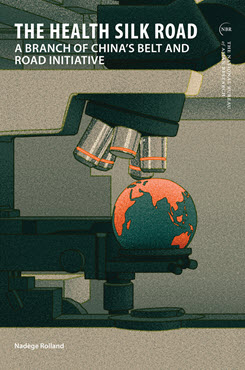NBR Special Report No. 113
The Health Silk Road: A Branch of China’s Belt and Road Initiative
This report describes the birth, geographies of expansion, and main drivers behind China’s Health Silk Road, a branch of Xi Jinping’s Belt and Road Initiative (BRI).
EXECUTIVE SUMMARY
MAIN ARGUMENT
The deployment of China’s Health Silk Road (HSR), a branch of BRI specifically dedicated to international health cooperation, was decided and implemented five years before the outbreak of the Covid-19 pandemic. This report describes the HSR’s birth and the geographies and mechanisms of its expansion, including existing international and regional multilateral institutions as well as a set of new institutionalized partnerships with nongovernmental actors in the form of so-called alliances. Beyond evident commercial and diplomatic drivers, the HSR represents a determined effort to project China’s civilizational influence and to assert China’s “wisdom” and “experience” as viable alternatives to Western models. The report argues that the centralized and orderly structure of the HSR serves as a useful illustration of the extensively systematic organization of BRI’s deployment more broadly, at the service of greater geopolitical ambitions.
POLICY IMPLICATIONS
- As a branch of BRI, the HSR provides an informative model of Beijing’s strategic planning and its use of specific mechanisms to expand its global influence: from the creation of medical and health standards to the penetration of foreign markets, and from shaping international norms to influencing the future of health governance in third countries.
- The HSR is not a public relations campaign founded on empty slogans. It is a systematic effort whose deployment exemplifies the Chinese party-state’s ability to mobilize several of its own branches and affiliates, as well as nominally nongovernmental or nonstate actors, to execute its vision.
- The HSR reflects the Chinese party-state’s vision of a future China-led order grounded in the rejection of Western systems of belief and their replacement with quintessentially Chinese alternatives.
Nadège Rolland is Distinguished Fellow, China Studies, at the National Bureau of Asian Research.


